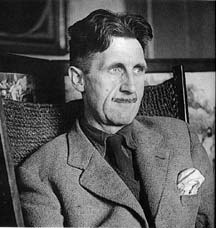Autism: Movies and Television Are Not Reality
A controversy has broken out in Britain in the past few weeks about a docudrama entitled "Hear the Silence" concerning the link between MMR (measles, mumps, and rubella) vaccinations and autism. Regrettably, I will probably not see the program since it is airing on BBC and might not be available to American audiences. I have more than a passing interest; my sixteen-year-old son, Brendan, is autistic.
But, I have read a great deal about it and have had several e-mail exchanges with one of my editors about it. The growing hysteria about the rise (and this is debatable for a number of reasons) in numbers of autistic children and compulsory and mass vaccinations of children has little basis in science. And, in view of alternatives - we do know the damage measles, mumps and rubella can do – against a theory, more accurately speculation that there might be some connection, what is a parent to think? Still, when it comes to your own flesh and blood, it is bloody damn difficult to remain detached and objective.
Dr Michael Fitzpatrick is the author of The Tyranny of Health: Doctors and the Regulation of Lifestyle and the parent of an autistic child had this to say in Spiked-Online:
"Hear the Silence is a scientifically dishonest and emotionally manipulative film, which can only compound the distress already experienced by families affected by autism as a result of the anti-MMR campaign. This campaign has made parents feel guilty that, by giving their children the MMR vaccine, they may have contributed to the development of autism - a notion for which there is, after more than five years, still not a shred of scientific evidence. It has also dragged more than 1000 families into a prolonged process of litigation (now halted by the Legal Services Commission), which could only lead to disappointment and disillusionment."
I could not have put it better myself. Autism is an affliction coloring every aspect of my life as well as that of my daughter and ex-wife. It has opened a portal into the world of prejudice, condescension, and superstition I could have hardly known existed. To use this as fodder for made for cheesy TV tearjerkers (and there have been several made in the U.S.) often appears as opportunistic voyeurism from where I am sitting.
Brendan was already eleven when the controversy about MMR broke in the news, thereby knowing that had there been any conclusive evidence I would not have had it available to me when he was vaccinated. There's enough guilt and second-guessing as it is. However, Brendan has had the misfortune of living in the post "Rain Man" world (the 1988 movie starring Dustin Hoffman) and the host of misconceptions it has foisted upon the general public. This is not to say it was not a wonderful movie – particularly Hoffman's performance, which was dead on – it was. Still, its focus on the "savant" features has had some negative effects.
When people first meet Brendan or discover that he is autistic, they often say something like "I bet he's good in math" (which in fact, he isn't) or they wait looking for his "special" gift as if it were a parlor trick. The savant feature, or as it was called in less politically correct time "idiot savant", occurs in perhaps one in two hundred autistic children – compared to 1 in 2000 in Downs Syndrome or 1 in 20,000 in "normal" children. In short, it is not universal. But, if you were to ask Brendan about spiders, you would learn more than you would ever care to know unless you were an entomologist. This is not a savant feature, but rather a fixation; a trait common across the entire (and rather wide) spectrum of severity within the autistic disorder.
Is it possible to have a relationship with an autistic child? Is it possible to have a relationship with a cat? This is not an attempt to demean Brendan: I am simply saying that the "normal" parameters of parent-child do not always have much currency in our relationship. He is different, but loved nonetheless.





0 Comments:
Post a Comment
<< Home